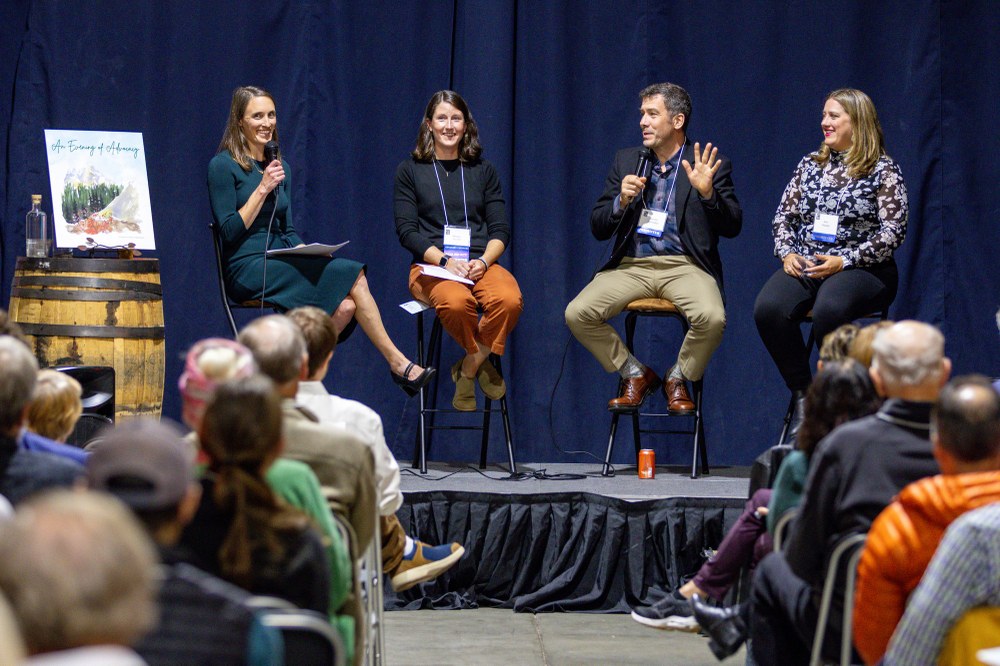
The Mountaineers has a long and rich history as a regional leader advocating on behalf of the natural world, and our successes would not be possible without the dedication and thoughtful actions of our whole community. On Wednesday October 9, we gathered for An Evening of Advocacy, the annual event that highlights and invites people to support the work of our Conservation & Advocacy programs.
Thanks to the incredible generosity of our donors and sponsors, we raised nearly $24,000 to support our Conservation & Advocacy programs. We are also thrilled to announce 100% participation in our Conservation Pledge, with attendees committing to deepen their support for conservation education, public lands stewardship, and advocacy engagement. We are so grateful for this support, and couldn't do it without everyone who chose to make an impact.
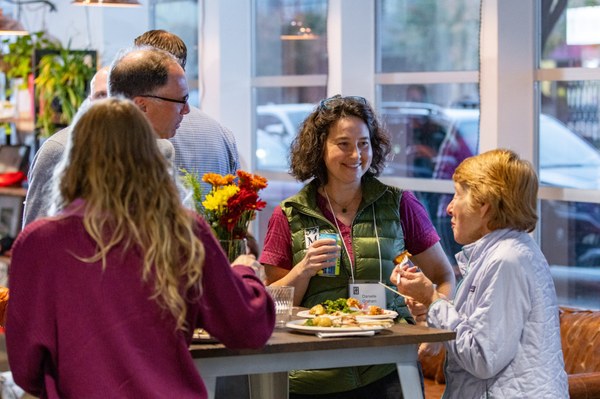 Danielle Graham talks with Nancy Temkin at the reception.
Danielle Graham talks with Nancy Temkin at the reception.
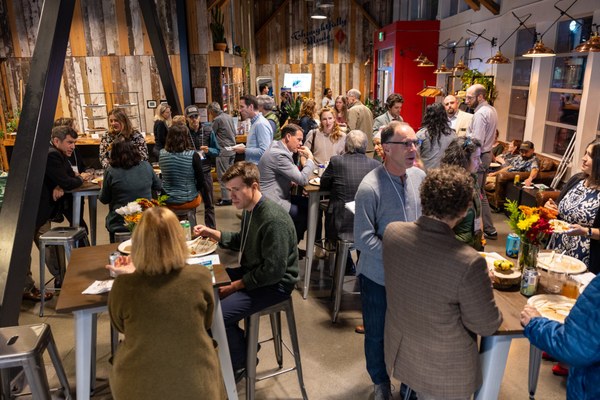 Regional conservation advocates and Mountaineers members gather in the Westland Distillery Tasting Room during the reception.
Regional conservation advocates and Mountaineers members gather in the Westland Distillery Tasting Room during the reception.
At Westland Distillery on a clear fall evening, 62 conservation advocates, Mountaineers members, and engaged donors joined together for a delightful reception. Guests enjoyed a delicious PNW-sourced meal by Ravishing Radish, beverages donated by sponsors Ghostfish Brewing, Georgetown Brewing, Seattle Cider, and Tinte Cellars, and a special tasting flight from Westland Distillery. The room was packed with energy as attendees caught up with one another, shared stories, and picked up complimentary copies of Mountaineers Books titles Cool Season Gardener and What Birds Eat. At the end of the reception, attendees moved into the Westland Cask Room for the main speaking program.
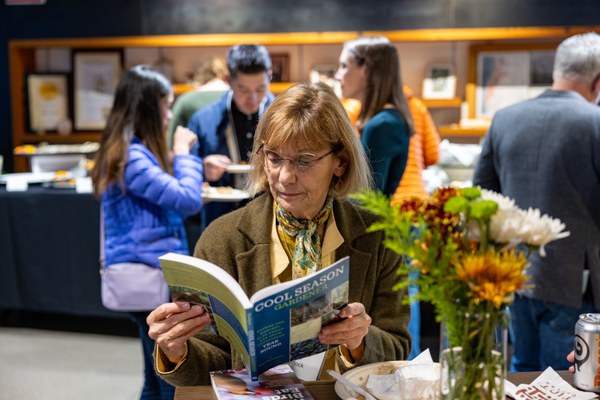 A guest reviews a complimentary copy of Mountaineers Books title.
A guest reviews a complimentary copy of Mountaineers Books title.
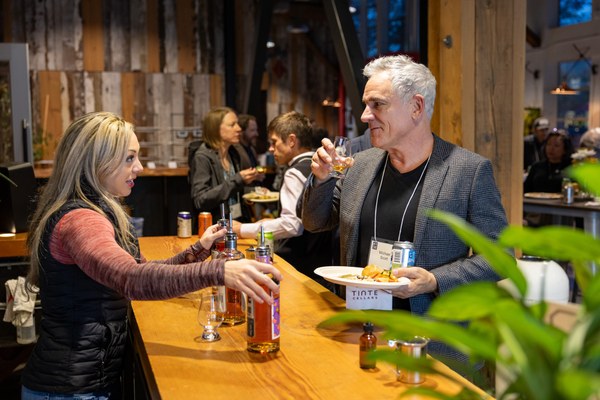
A Sustainable Future for Northwest Forests
To start the program, Betsy Roblee, The Mountaineers Conservation and Advocacy Director, took the stage among rows of wooden whiskey barrels in the Westland Cask Room. She opened the program with an acknowledgement of the Coast Salish Tribes on whose land we were gathered, then introduced the topic of the discussion - a sustainable future for Northwest forests - followed by introducing the evening’s panelists.
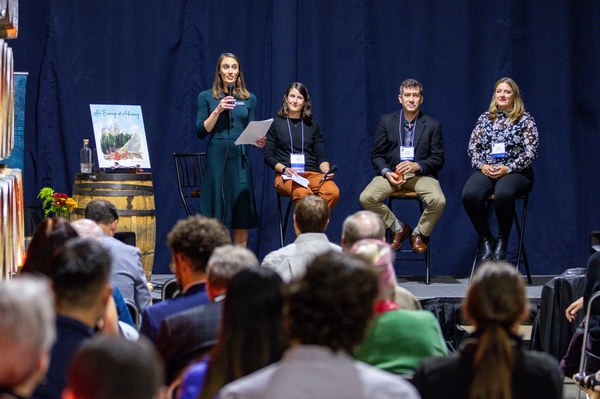
The panel included Megan Birzell, Washington State Director of The Wilderness Society, Dr. James Johnston, Assistant Research Professor at University of Oregon, and Ann House, JD, a Senior Staff Attorney with the Snoqualmie Indian Tribe – James and Ann serve with Betsy on the Federal Advisory Committee. The panel shared more about the origins of the Northwest Forest Plan, why it’s due for a change, and tackled questions like “How can we protect our last remaining old growth forests?”, “How do we prepare for increased wildfire on the west side of the Cascades in the era of climate change?”, and “What does increased tribal leadership in forest management look like?”
The discussion opened with insights from Megan Birzell of The Wilderness Society, who highlighted the unique and irreplaceable ecological value of old-growth forests in the Northwest.
“Our forests are awe inspiring places to connect with nature. What’s unique about Northwest forests is there’s so much old growth here,” shared Megan. “Twenty five percent of all of the old growth in the lower 48 states occurs in the Pacific Northwest, thanks in large part to the Northwest Forest Plan’s management and protections.”
She also pointed out that while the original 1994 plan successfully protected many of these forests, it did not anticipate climate change. Forests now face new threats, such as unpredictable wildfires and shifting weather patterns, which the updated plan aims to mitigate.
The original Northwest Forest Plan was groundbreaking and ahead of its time, but there’s now an urgent need to set these forests up for success in the 21st century and make them resilient to climate change.
James Johnston, a research professor specializing in fire ecology, spoke about the historical context of the Northwest Forest Plan, designed initially to protect habitats of endangered species like the spotted owl. Fire, a natural part of forest ecosystems, was not fully considered in the original plan. James advocated for adaptive management practices, especially for drier forests east of the Cascades where old-growth stands are declining due to climate change and a buildup of fire-prone vegetation.
James emphasized that today's forests require a more dynamic view and approach to land use allocations and management standards that takes fire management and climate change into account and shared some of the recommendations of the Federal Advisory Committee.
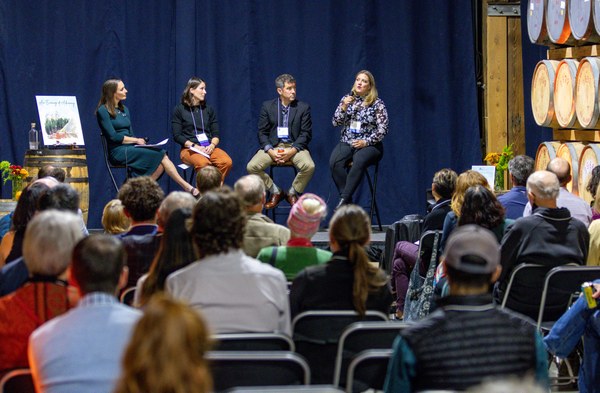
Ann House, attorney for the Snoqualmie Tribe, shared the critical perspective of indigenous communities, noting the plan's historical exclusion of tribal voices. While federal policies now require tribal consultation, Ann argued that this is not always meaningfully implemented. Many tribes remain concerned about insufficient cultural representation, especially regarding traditional practices, like the harvesting of first foods and inclusion of cultural burns.
Ann spoke positively about the Federal Advisory Committee’s process with the Forest Service in making recommendations that advocate for continued tribal inclusion to foster trust and equitable co-stewardship of the land. She commended the efforts by Forest Service staff to lay groundwork for including tribal participation and perspectives during implementation of the recommendations.
Outdoor recreation is the primary way that people experience their national forests. Betsy shared about the role that The Mountaineers plays in representing outdoor recreation on the committee. “While much of the Committee’s work was directly related to the threats of climate change, wildfire, and tribal inclusion, I did manage to secure a couple of provisions related to recreation, focused on ensuring that trails and recreation infrastructure are incorporated into the design of forest health as well as restoration efforts after wildfire and other climate-related events.”
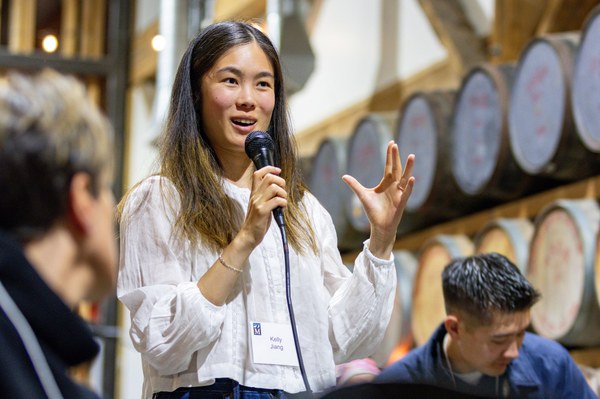
After the moderated conversation ended, the audience asked questions of our panel. Panelists addressed audience concerns about forest management flexibility and the trustworthiness of the Forest Service. James Johnston shared with attendees that the FAC recommendations effectively restrict logging of old-growth trees. Still, he noted that agency capacity issues and polarized politics challenge effective restoration. Ann highlighted the importance of partnerships and local initiatives in bolstering resources and ensuring sustained progress on conservation goals.
The panel wrapped up with a call for the public to engage in the upcoming public comment period, emphasizing that personalized letters can greatly influence policy outcomes and conservation efforts. “The key to making your voice heard during the upcoming comment period is personalization,” shared Megan at the event. “Where you can shine is by putting your heart into your letter and sharing your connection to these forests, why they matter to you, the things you want to see in the plan.”
SUPPORTING CONSERVATION AND ADVOCACY LEADERSHIP
Mountaineers board of directors member, Brynne Kosianski closed the event with a heartfelt call to action, urging attendees to actively support The Mountaineers conservation efforts. Reflecting on the importance of preserving wild places for future generations, she shared her own family’s meaningful experiences in nature, underscoring the deep connections and peace that outdoor spaces bring. The future of these landscapes is not guaranteed and depends on proactive efforts to address urgent issues like climate change, underfunding, and harmful legislation.
Brynne asked everyone to recognize their individual influence within The Mountaineers community, amplifying voices through collective advocacy. Stressing the immediate need for conservation funding, she cited Yvon Chouinard's perspective that supporting grassroots efforts is crucial for solving environmental challenges before they worsen.
“Your gift tonight supports a program that is leading at the edge of recreation and conservation. A community that not only focuses on building the collective expertise needed to know how to act, but the relationships required to influence major policy-based change.”
Brynne invited attendees to join her in making a financial pledge, noting that their contributions are doubled through a $5,000 match, maximizing their impact. She closed by thanking everyone for their commitment to protecting these essential spaces, reminding them that every action counts toward securing a future where nature continues to thrive.
Thanks to donors at the event we successfully raised $24,000 to support our conservation programs. If you feel moved by this work and want to help us reach our $30,000 fundraising goal, please consider a gift today.
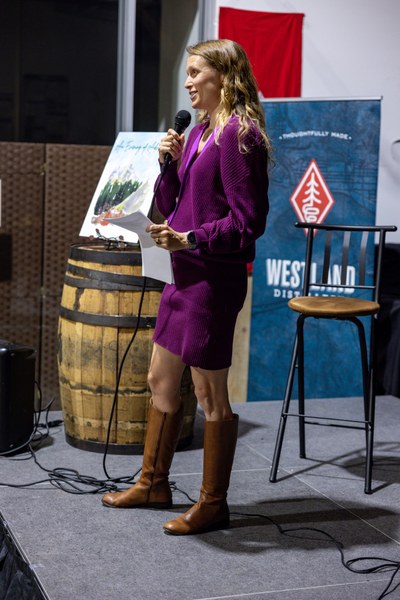
TAKE THE PLEDGE
We are so thankful for the 100% participation of attendees in our Conservation Pledge. We hope you’ll also consider engaging in conservation and advocacy with The Mountaineers:
- Support with a tax-deductible donation, elevating conservation and advocacy efforts at The Mountaineers.
- Engage in conservation education through a Mountaineers e-Learning course or through our Braided River conservation titles published by Mountaineers Books.
- Steward our public lands by participating in a stewardship activity through The Mountaineers or another local organization.
- Advocate on behalf of the natural world by staying involved and taking action on one of our ongoing conservation issues, including the upcoming Northwest Forest Plan amendment public comment period.
Get Ready to Take Action
Our next opportunity to help shape a sustainable future for Northwest forests through a climate-smart amendment to the Northwest Forest Plan is almost here. We expect a public comment period to open in early November, accepting feedback on the Forest Service’s proposed action and draft environmental impact statement. This is a unique opportunity to elevate recreation perspectives toward the goal of making our forests more sustainable.
The Mountaineers will be commenting on behalf of our community and we encourage our members to share their comments directly with the Forest Service as well. We’ll keep you updated through our blog and Conservation Currents newsletter on how best to engage in this process and share the comment links.
Thanks for adventuring with purpose with us by speaking up about the forests we love - from the Olympics to the Deschutes and beyond.
 The Mountaineers
The Mountaineers